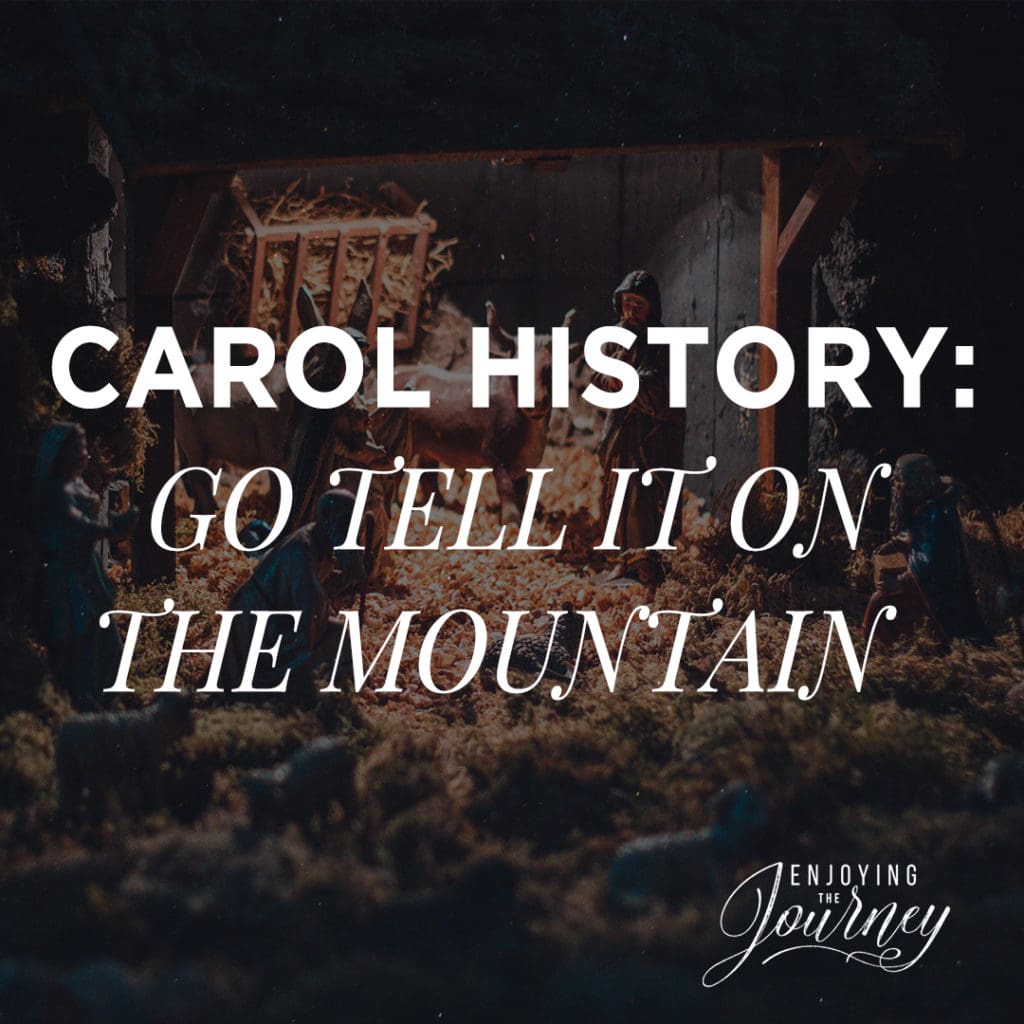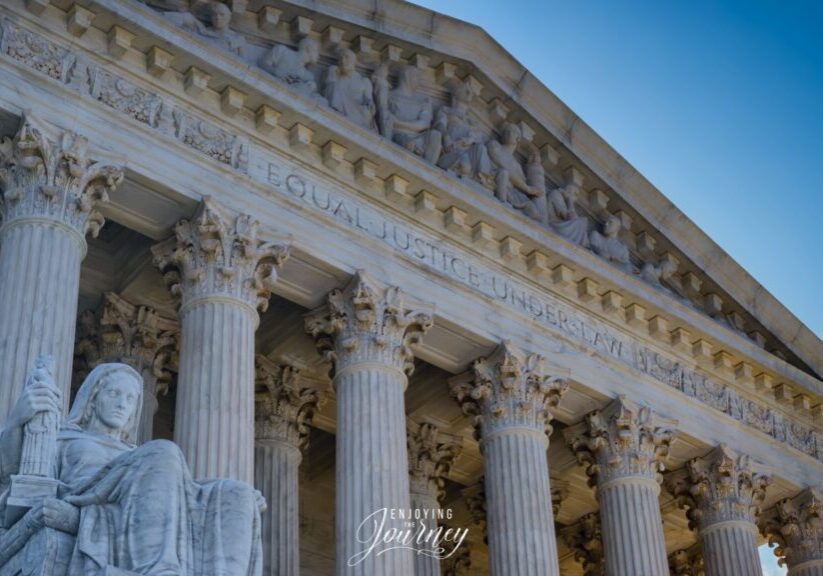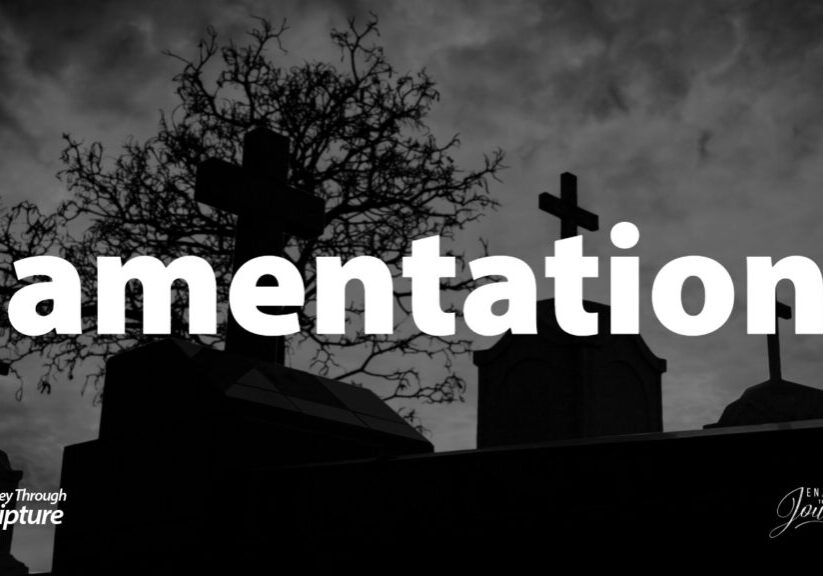
Hymn History: Go Tell It on the Mountain
The Christmas season can be one of the most joyful and heartwarming times of the year. Families meet together, gifts are exchanged, and the wonderful Christmas carols are sung. We as Christians take time to remember the coming of our Savior. One of the greatest Christmas carols is also a great reminder of our responsibility to tell others about the One who came to bring us Salvation. That hymn is Go Tell It on the Mountain.
The Author: John Wesley Work, Jr.
Soon after the abolition of slavery, there arose a great need for education among African Americans. Many know of the famous Fisk University and its widely acclaimed Jubilee Singers. Well, among the students at Fisk was a young man by the name of John Wesley Work, Jr. He was a graduate of that school, and upon receiving his Master’s degree, he began to teach Latin and Greek. These, however, were not his passion. His heart was in the work of the famed Jubilee Singers. He believed that the well-done, old, slave spirituals could be a marvelous tool to bring healing to a deeply divided nation.
His great love for the students was evident to all. However, in 1916, new leadership at the school had a very negative view of the ministry Work was seeking to do. They had traveled to revival meetings and evangelistic crusades alongside their various other concerts. Due to other troubles at the school during this time, the opposition continued to rise amongst the other faculty and staff. Ultimately, Work was forced to resign in 1923. His wife reflected that:
“The ideals and accomplishments of John Work, even his generous character, fell gradually under suspicion…There is nothing sadder in the tragic history of human souls than those years from 1915 to 1923 when at Fisk University the soul was slowly being crushed out of John Work. Friends grew timid and aloof. Students were afraid to be seen approaching him. His wife and children withdrew from almost every contact with their fellows. And why? There was no why, there was only suspicion, dislike, innuendo and cold disapproval in the seats of power. The new administration at Fisk and the Music Department redoubled their fight against the jubilee song… and yet withal Work could not realize his position…His deep interest in the welfare of the students, his intimate association with them, was more and more resented and misinterpreted. Caught in the whirlpool he struggled dizzily on…”
He would go on to spend a short time as president of Roger Williams University before passing away on September 7, 1925. In many ways, he has been forgotten. But his work and legacy continue today! For this man had been so fully invested in the edification of others through Christian music. He and his brother, Fredrick, published one of the very first spiritual hymnbooks in 1907 and again in 1915.
An Old Carol Find New Life
While working to compile the songs and slave hymns, Work was particularly taken with the chorus Go Tell It on the Mountain. It had been sung for decades, but without any stanzas. John sat down and wrote the powerful stanzas that we know and love today. Frederick and John’s son (John Work III) then composed the piece and included it in their 1907 book Folk Songs of the American Negro. This Christmas carol is now one of the most widely sung carols in the Western world. Many of the other classic spirituals were published in this as well.
His love for the African-American spirituals also stemmed from their deep roots in Scripture. He believed many of them to be great tools for teaching the Bible to all people. This passion did not die with him. His son, John Work III, became one of the most notable musicologists and African-American music historians of his day. Truly, his labor was not in vain.
So, amid the Christmas hustle and bustle, let us not forget to go tell others that Jesus Christ was born to die for you and me. This is not merely a carol to be sung, it is a command to be obeyed!
Lyrics: Go Tell It On the Mountain
(Refrain) Go tell it on the mountain,
over the hills, and ev’rywhere;
go, tell it on the mountain
that Jesus Christ is born.
1. While shepherds kept their watching
o’er silent flocks by night,
behold, throughout the heavens
there shone a holy light. (Refrain)
2. The shepherds feared and trembled
when lo, above the earth
rang out the angel chorus
that hailed our Savior’s birth. (Refrain)
3. Down in a lowly manger
the humble Christ was born,
and God sent us salvation
that blessed Christmas morn. (Refrain)
Discover more from Enjoying the Journey
Subscribe to get the latest posts sent to your email.







Thanks again for sharing the history of hymns and songs.
I love the history behind these powerful, spiritual songs!